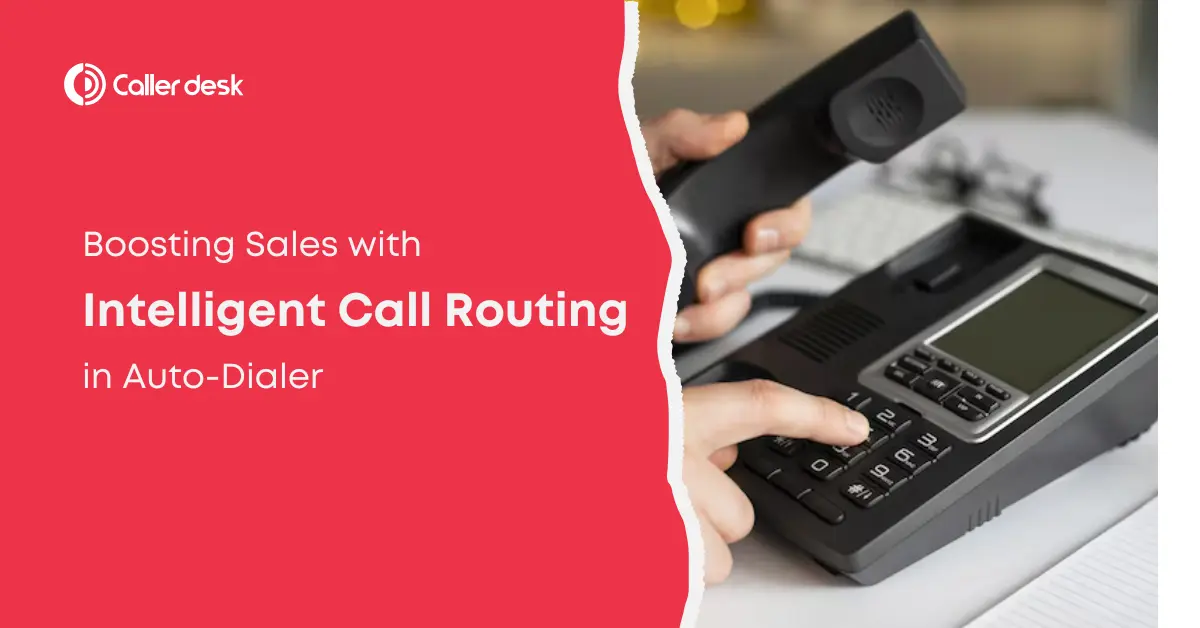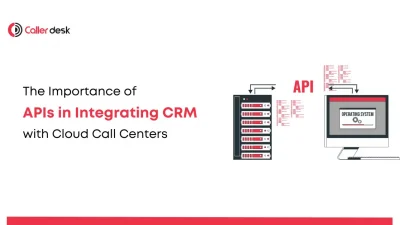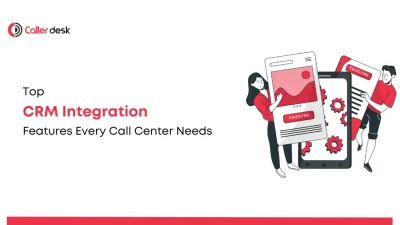Did you know that businesses lose up to 60% of potential sales due to misrouted calls or delayed responses? Customers today expect quick, seamless interactions—and failing to meet these expectations can cost you valuable deals.
Intelligent call routing is the game-changing solution you need. This advanced feature in auto-dialers ensures every customer call is directed to the right agent, based on criteria like skills, availability, and location. The result? Faster responses, personalized service, and increased conversions.
Let’s explore how intelligent call routing works, its cutting-edge features, and the ROI it can deliver for your business.
What is Intelligent Call Routing in Auto-Dialers?
Intelligent call routing uses predefined rules to connect incoming calls to the most suitable agent. It factors in:
- Agent skills (e.g., sales expertise, technical knowledge).
- Customer data (e.g., purchase history, past interactions).
- Location and time zone of the caller.
- Real-time agent availability to ensure prompt responses.
For example:
A telecom company routing high-value client inquiries to senior account managers ensures customers receive tailored assistance, boosting satisfaction and loyalty.
By eliminating unnecessary transfers and delays, intelligent call routing transforms your communication process into a streamlined, conversion-driving system.
How Intelligent Call Routing Boosts Sales
1. Faster Connections to the Right Agent
Connecting a customer to the wrong agent wastes time and frustrates both parties. Intelligent call routing ensures calls are directed to the most qualified agent immediately.
Faster connections mean fewer dropped calls and higher customer satisfaction, increasing the likelihood of conversions.
2. Reduced Response Times
Time is critical in sales. Intelligent call routing minimizes delays by routing calls to available agents instantly.
An e-commerce company used intelligent call routing during a holiday sale, reducing wait times by 40%. This led to a 20% increase in completed purchases during the campaign.
3. Personalized Customer Experience
Modern customers expect businesses to understand their needs. Intelligent call routing leverages data like interaction history or preferences to connect customers with agents who are already familiar with their account.
Why personalization works:
- Builds trust and loyalty.
- Creates opportunities for upselling and cross-selling.
For instance, a repeat customer looking for a service upgrade can be routed to the same agent who previously handled their account, ensuring a seamless experience.
4. Enhanced Agent Productivity
By assigning calls aligned with their expertise, intelligent call routing ensures agents spend their time on high-impact conversations.
A real estate agency uses skill-based routing to connect inquiries about luxury properties to senior agents. This lets junior agents focus on rental queries, improving overall productivity and closing rates.
5. Seamless Handling of High Call Volumes
During peak periods, intelligent call routing ensures no lead is left unattended by evenly distributing calls among available agents.
Why it’s effective:
- Prevents bottlenecks during promotions.
- Ensures prompt service even during spikes in demand.
A fitness brand running a New Year’s membership campaign handled a 200% surge in calls by using time-based routing, increasing sign-ups without overwhelming their team.
Key Features of Intelligent Call Routing in Auto-Dialers
1. Skill-Based Routing
Nobody likes being passed from one agent to another. Skill-based routing ensures customers are connected to the most qualified agent right away.
Example:
A financial services company uses skill-based routing to direct loan inquiries to lending specialists and investment questions to wealth managers. Customers get the right help without unnecessary delays.
2. Geographical Routing
When customers need region-specific assistance, geographical routing makes all the difference. Calls are automatically directed to agents familiar with the local area. Why It’s a Game-Changer:
- Offers personalized, location-based support.
- Speeds up problem resolution by connecting customers to local experts.
Example:
A courier service routes calls to regional support teams familiar with delivery zones. Customers get faster responses and fewer errors, making the experience smooth and hassle-free.
3. Priority Routing
High-value customers deserve high-priority service. Priority routing ensures your top-tier clients are always first in line, reinforcing their loyalty.
Why It Matters:
- Keeps VIP customers happy and engaged.
- Shows your best clients that they’re valued.
Example:
An e-commerce platform identifies VIP shoppers and ensures they’re connected to senior support agents within seconds, creating a premium experience that keeps them coming back.
4. Time-Based Routing
Distributes calls based on agent availability and time zones, ensuring 24/7 coverage.
Why It Works:
- Ensures global customers always have someone to talk to.
- Reduces downtime by efficiently distributing calls to available agents.
Example:
A tech company uses time-based routing to connect customers in the U.S. to support teams during their work hours, while customers in Asia are routed to night-shift agents.
5. Multi-Channel Integration
Modern customers don’t just use phones—they also rely on email, chat, and social media. Multi-channel integration ensures a unified support experience across all platforms.
Why It’s Essential:
- Provides customers with multiple ways to get help.
- Keeps all interactions in sync, so agents always have context.
Example:
A subscription box service integrates calls, emails, and social media messages into a single dashboard. When a customer follows up on an issue, agents already know the history, saving time and reducing frustration.
Emerging Trends: The Future of Intelligent Call Routing
1. AI-Powered Routing
Artificial Intelligence analyzes real-time customer behavior to predict their needs and route calls accordingly.
AI can identify a lead’s urgency level based on their interaction history and prioritize routing to senior sales agents for faster conversions.
2. Voice-Activated Routing
Customers can state their concerns, and the system routes them to the appropriate department automatically, eliminating complicated menu navigation.
3. Predictive Analytics
Uses data insights to predict call patterns and proactively adjust routing strategies to avoid bottlenecks during high-traffic periods.
These advancements promise even faster responses, better customer experiences, and improved operational efficiency.
The ROI of Intelligent Call Routing
Implementing intelligent call routing delivers measurable results, including:
- Increased Conversions: Faster connections and personalized experiences lead to higher sales.
- Cost Savings: Efficient call distribution reduces the need for additional staffing during peak times.
- Improved Customer Retention: Enhanced service builds loyalty and repeat business.
Case Study:
A SaaS company saw a 30% increase in sales and reduced call resolution times by 25% within three months of adopting intelligent call routing.
Conclusion
Intelligent call routing is a must-have for businesses looking to optimize their communication systems and boost sales performance. By ensuring customers are connected to the right agents faster, delivering personalized interactions, and handling high call volumes seamlessly, it drives better results for both customers and teams.
Callerdesk offers advanced intelligent call routing solutions tailored to your business’s unique needs. Take the next step toward smarter call management and increased sales today.
Revolutionize Your Sales Process with Callerdesk!
Don’t miss out on the opportunity to improve customer satisfaction and drive higher conversions.
Request a Free Demo Today: See how Callerdesk can help you achieve a 25% boost in sales performance and reduce response times by 40% within just three months!





